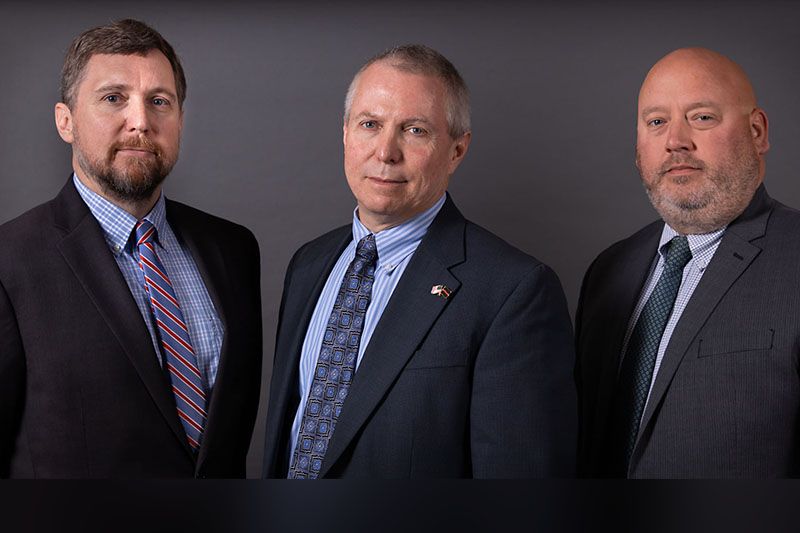At Willis, Willis & Rizzi every client and case we take on we devote our full attention and resources to helping that client and securing a just resolution in their case. This is especially important in spinal injury cases due to the many challenges involved.
Continue readingSweet, Sour, Tart and Off the Charts
|
|
|
We have t-shirts!
Would you like to have a free Willis, Willis & Rizzi t-shirt? Contact us if you are interested! Do you have an idea for a t-shirt design for our firm? If so, send us your idea – we would love to see it! |
|
||
|
|
|
|
The Goal of Full Recovery
At Willis, Willis & Rizzi Co. LPA we strive to be the complete personal injury firm. This means not only handling the legal aspects of obtaining a monetary recovery for our clients; we help clients navigate the sea of medical treatment so they can gain the best medical recovery as well. This is step one. Big hospitals and medical practices can be difficult to navigate. We have been there before and are happy to help. We also help with the emotional recovery from simply talking with clients to helping them find professional help when needed. Among our attorneys we have state certified training in fire/rescue and emergency medical medicine. Mark works on a local fire department responding to motor vehicle crashes and other traumatic injury events on a regular basis. We understand what is going on in the moments after. This is where medical treatment begins. We also have attorneys with training in accident reconstruction. This is helpful if there is some question about who is at fault in the collision. Skid marks, yaw marks, debris fields, traffic light sequencing and engineering, electronic data records (black boxes) in cars all come into play in the collision reconstruction field. Beyond our enhanced emergency medical knowledge, we have a panel of medical doctors at our disposal for additional in-depth medical knowledge and insight. We have been in this field for over 75 years combined and know how to help clients get all the treatment they need to make a physical recovery, emotional recovery, and mental recovery so that we can turn to the last leg: a full legal recovery with full compensation. No other law firm that we are aware of offers this breadth of knowledge and insight.
|
|
|
|
|
|
|
|
|
|
Does Your Doctor Really Care?
We strive to get you the best possible medical care.
We represent injury victims. As such, all of our clients have one thing in common: they all have an injury. So over the years, we have run across many physicians treating our clients. We have seen clients have great experiences with physicians who truly cared for them and took good care of them and we have had clients whose physicians have been standoffish because they are injured as opposed to having a wellness check or some disease. Many doctors do not want to get involved in the legal process. They may have had a bad experience in the legal process or they are scared of the process or just don’t want to take the time to advocate on behalf of a patient. Whatever the reason, it seems like doctors who do not want to be involved in the legal process are putting their needs ahead of their patient’s needs.
I want to share a story with you. When a spinal vertebra is crushed and heals, it heals in a now crushed/deformed state. It does not pop back into its pre-injured dimensions. I have used this example in trial on multiple occasions. I take several pop cans and stack them up in front of the jury and you can stack them one on top of the other. No problem. Then I take one and step down on the corner of it with my foot crushing it a little bit. I then attempt to stack the pop cans up and they won’t stack back up because one of them is now deformed. That is the equivalent of what happens in your spine when you have a crushed vertebra (often referred to by physicians as a compressed vertebra). You now have a deformed vertebra that is responsible for holding up vertebrae above it. That stacked-can imagery resonates with a jury. It is accurate and most spine surgeons view a compression fracture of the vertebra as a permanent defect which has life-long, lasting implications.
We had a client who sustained a spinal compression fracture in a vertebra. This was the result of a car crash. She happened to work for a local orthopedic doctor and had for years. So naturally she went to see her employer about her spine injury. Ultimately we asked the orthopedic surgeon to answer a few questions regarding her injury and treatment and sent over a letter making the request. The letter came back to our office, via fax, with three words handwritten on it: “stupid stupid stupid”. After much trouble, I was finally able to speak to the doctor directly who said her employee’s injury was no big deal and thought we were making a mountain out of a mole hill and there was really no reason to be bringing any type of an injury claim. We believe differently. We have tried and handled many crushed vertebral injury claims.
Our client was pretty upset with her orthopedic doctor/employer whom she had known for years who was either afraid or didn’t want to spend the time to help her out on the medical front. That story is common in our world. I interact with doctors on almost a daily basis and I get it. They have a lot of stresses in their life brought on by dealing with health insurance companies, hospitals and patients. It is not an easy job, but I think some of them have lost their way when they fail to take on their patients’ needs before their own. I sent our client to another spine surgeon in town who is not afraid to advocate on behalf of patients and he wrote us a report addressing all the lifelong implications that she will incur as a result of this permanent defect in her spine caused by the collision. The responsible insurance company paid us their policy limits and our client found a new physician to care for her ongoing issues.
The best time to build a relationship with your physician is not necessarily when you need them, but before you need them. I encourage you to get to know your physician so that if the need arises they will hopefully have a personal connection to you and feel compelled to help you and advocate on your behalf on the medical front if the need arises.
I think we distinguish ourselves from the mass marketers that do personal injury work as we take time to help clients get the best possible medical treatment – the treatment they deserve. We do not handle thousands and thousands of claims at one time where they go through the office like a fast food assembly line. We treat each case based on the needs of the client, like a fine restaurant takes pride in preparing each meal individually. Lawyers all charge the same basic percentage so why settle for the assembly line process when you can have personal care tailored to your needs – just like you deserve on the medical front.
Bicycle and Pedestrian Accident Attorneys
When you hire Willis, Willis & Rizzi to handle your pedestrian or bicycle accident case you not only get a legal team that cares enough to look for evidence related to your case but also knows where to look for this evidence.
Continue readingAccidents and Injuries Involving Commercial Vehicles
At Willis, Willis & Rizzi we have handled many personal injury cases involving commercial vehicles even when our clients didn’t realize the driver that hit them was operating on behalf of their employer.
Continue readingPremises Liability Attorneys
Premises liability cases present many challenges, and you need an experienced team who has been through the process many times. These are extremely difficult cases to prove. We have been through the courts of appeal regarding premises liability cases, and have the battle-scarred victories to prove it.
Continue readingDog Bite Lawyers Akron
At Willis, Willis & Rizzi we handle dog bite and animal attack cases on a regular basis. You need attorneys who not only understands the applicable laws, but also the nitty gritty details of how local animal boards handle animal complaints.
Continue readingBrain Injury Attorneys Akron
As brain injury attorneys, we counsel our clients and tell them that their goal is to get better. Do whatever you need to do to get back to normal or as close to normal as possible. Our goal at Willis, Willis & Rizzi is to handle all of the legal ramifications of the brain injury. No one can do the treatments for you; you have to do the treatments to get better.
Continue readingPersonal Injury Attorneys Akron – Why Willis, Willis & Rizzi?
If you have been injured in an accident and you feel like you are stuck on a deserted island in the middle of nowhere with a pirate ship full of insurance adjusters and their mumbo jumbo lobbing cannon balls at you, the personal injury attorneys at Willis, Willis & Rizzi are the equivalent of the entire US Navy Seventh Fleet coming over the horizon.
Continue readingProduct Liability Lawyers
We are a boutique law firm; we get 100% behind the personal injury cases that we decide to accept. That is where the difference lies between Willis, Willis & Rizzi and other law firms you may be considering for your defective product liability case.
Continue reading













